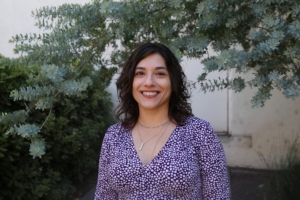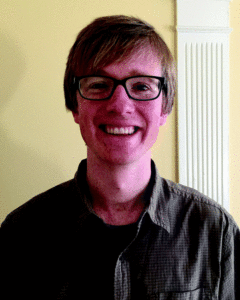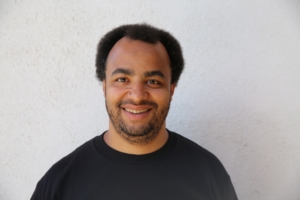Scripps College announced new faculty members as the Claremont, Calif. based women’s college kicked off its 2017-18 academic year during convocation ceremonies on August 29. As classes got underway, Scripps welcomed its largest entering class in the College’s history, with 329 first-year students. The new faculty who were introduced at convocation bring a range of expertise in such areas as fiction development, medical anthropology, insect-microbe associations, planetary physics, and philosophy of race. Dr. Ulysses J. “UJ” Sofia also attended the convocation event as the new dean of the W.M. Keck Science Department, which is the integrated sciences department for Claremont MeKenna, Pitzer, and Scripps Colleges. Sofia began his post as Keck dean on July 1.
New faculty biographies:

Leila Mansouri, assistant professor in the Department of English at Scripps College. Mansouri holds an MFA in fiction from UC Irvine and a PhD in American literature from UC Berkeley. Her short stories and essays have appeared in Los Angeles Review of Books, The New Inquiry, and Santa Monica Review, among others, and her fiction has been recognized by Best American Short Stories and anthologized in Tremors: New Fiction by Iranian American Writers. Her scholarship focuses on the intersection between literature and electoral politics in the early United States – in particular how the aesthetic discourse surrounding written “sketches” of character shaped the ways Americans came to understand electoral representation as representative. Her research has been supported by fellowships from the American Antiquarian Society and the Library Company of Philadelphia, and an article drawn from this work appeared in the journal NOVEL: A Forum on Fiction in the spring of 2016. Mansouri is currently completing two book-length projects: an academic monograph on how literary and electoral representation evolved together in the early United States and a novel, Half-Terrorist.

Gabriela Morales, assistant professor of anthropology at Scripps College. Morales earned her BA in anthropology and English from the University of Arizona and her MPhil and PhD in anthropology from Yale University. A critical medical anthropologist, she researches the intersections of medicine, race, and settler colonialism in the Bolivian Andes. Her current book project is an ethnography of care practices in the context of Bolivian state-led efforts to decolonize healthcare services. Drawing on ethnographic research in the rural Andes, she argues that relations of care are also a terrain of politics, in which patients and medical practitioners grapple with questions of personhood, recognition, and national belonging. In a context where state decolonization is promised but always uncertain, indigenous patients draw on practices of social memory and obligation to transform the conditions of biomedical treatment.

Ethan Van Arnam, assistant professor of chemistry in the Keck Science Department of Claremont McKenna, Pitzer, and Scripps Colleges. Van Arnam grew up in southeastern Connecticut and received his bachelors in chemistry from Bowdoin College in 2007. He completed his PhD in chemistry at Caltech in 2013. His doctoral work used chemistry tools to dissect interactions between drugs and their protein targets. He next made a significant change in research focus to study chemical ecology during a postdoctoral fellowship at Harvard Medical School from 2014 to 2017. In his postdoctoral work, Van Arnam researched antibiotics produced by symbiotic bacteria that live on ants. His research uses ecological frameworks, especially insect-microbe associations, to guide the discovery of new antibiotics. He is also interested in using these systems to understand how evolution crafts new chemical structures.

Ulysses “UJ” Sofia, Weinberg Family Dean of the Keck Science Department. Sofia received his BA from Wesleyan University in astronomy with high honors, and his PhD in astronomy with a concentration in physics from the University of Wisconsin-Madison. He was a National Research Council postdoc at NASA’s Goddard Space Flight Center before starting his academic career in the Astronomy department at Whitman College. There, Sofia was awarded the A.E. Lange Award for Distinguished Science Teaching, and received the inaugural William and Diana Deshler Endowed Chair. In 2009, he joined American University as chair and professor of Physics. At American, Sofia also held positions as associate dean for research, director of NASA District of Columbia Space Grant, consultant to NASA Flight Dynamics Division, and associate director of Goddard Planetary Heliophysics Institute. Sofia focuses his research in the areas of solar activity predictions, interstellar dust, and the interstellar medium, and has been involved with grants totaling nearly $4 million from NASA and the Hubble Space Telescope Science Institute.

James Garrison, Consortium for Faculty Diversity Fellow and visiting assistant professor in the Intercollegiate Department of Africana Studies, with an appointment at Scripps College. Born in Seattle, Garrison received his BA in philosophy from Whitman College in 2004, and his MA in philosophy from the University of HawaiÊ»i at MÄnoa in 2007. After research stints at Peking University and the Chinese University of Hong Kong, Garrison earned his PhD in philosophy from the University of Vienna in 2015. During the 2016–17 academic year, he lived in England, holding a teaching fellowship with the Department of Philosophy at the University of Bristol. Garrison’s research interests include intercultural philosophy, philosophy of race, philosophy of gender, aesthetics, ethics, and political philosophy, with specialties in the German- and Chinese-language traditions. His book manuscript—The Aesthetic Life of Power: Chinese and Western Insights into the Rituals of Subject Life—explores the ritual aspect of noted philosopher Judith Butler’s influential framework, extending this with an intercultural approach. His upcoming project—Black Bodies That Matter—likewise deals with Butler’s influential Bodies That Matter, using her writings on mourning, melancholia, and bodily violence to wrestle with the issues posed by the Black Lives Matter movement.

